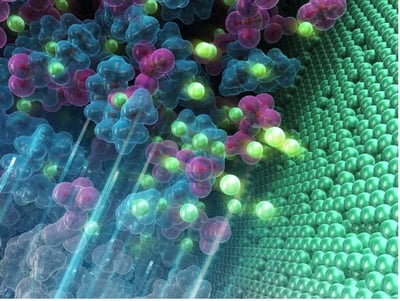Authors
Seongjae Ko, Tomohiro Obukata, Tatau Shimada, Norio Takenaka, Masanobu Nakayama, Atsuo Yamada, Yuki Yamada
Abstract
Lithium-metal batteries are a promising technology to address the emerging demand for high-energy-density storage systems. However, their cycling encounters a low Coulombic efficiency (CE) due to the unceasing electrolyte decomposition. Improving the stability of solid electrolyte interphase (SEI) suppresses the decomposition and increases CE. However, SEI morphology and chemistry alone cannot account for CE, and a full explanation is still lacking. Here we report that in diverse electrolytes, the large shift (>0.6 V) in the Li electrode potential and its association with the Li+ coordination structure influence the CE. Machine learning regression analysis and vibrational spectroscopy revealed that the formation of ion pairs is essential for upshifting the Li electrode potential, that is, for weakening the reducing ability of Li, which would lead to a high CE with diminished electrolyte decomposition. Various electrolytes with enhanced ion-pairing solution structure are designed to enable a significantly improved CE (>99%).

Nature Energy: https://www.nature.com/articles/s41560-022-01144-0